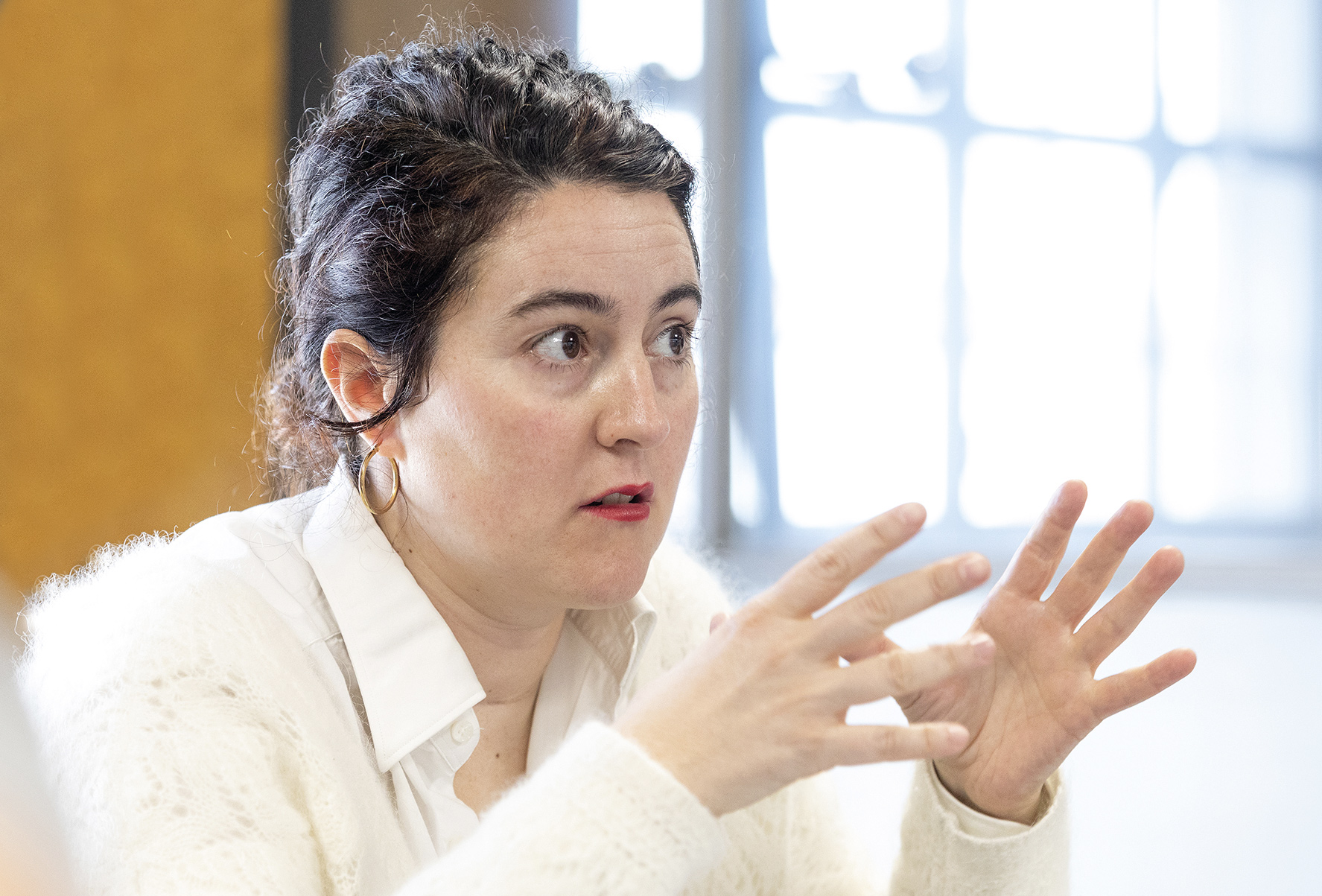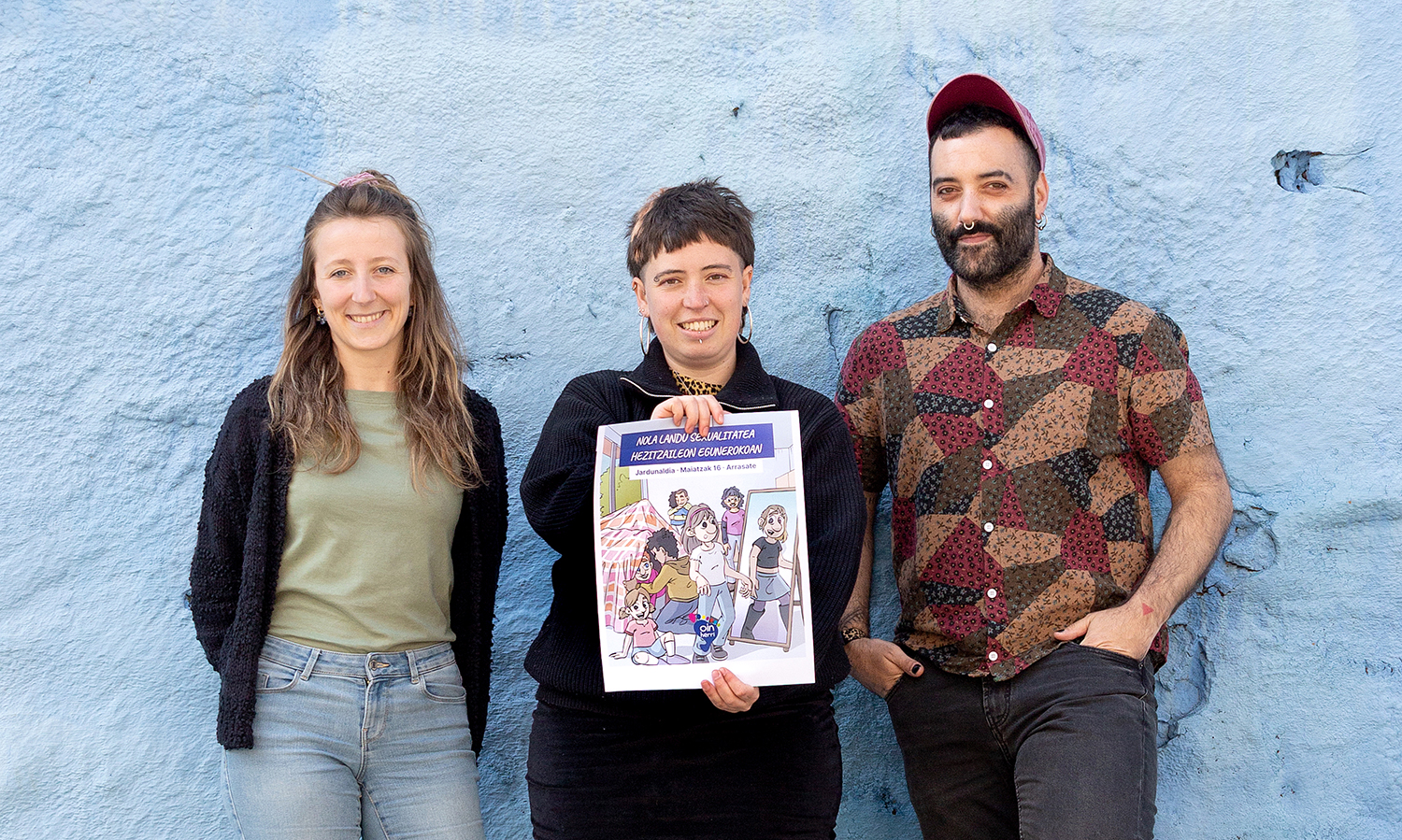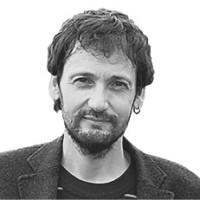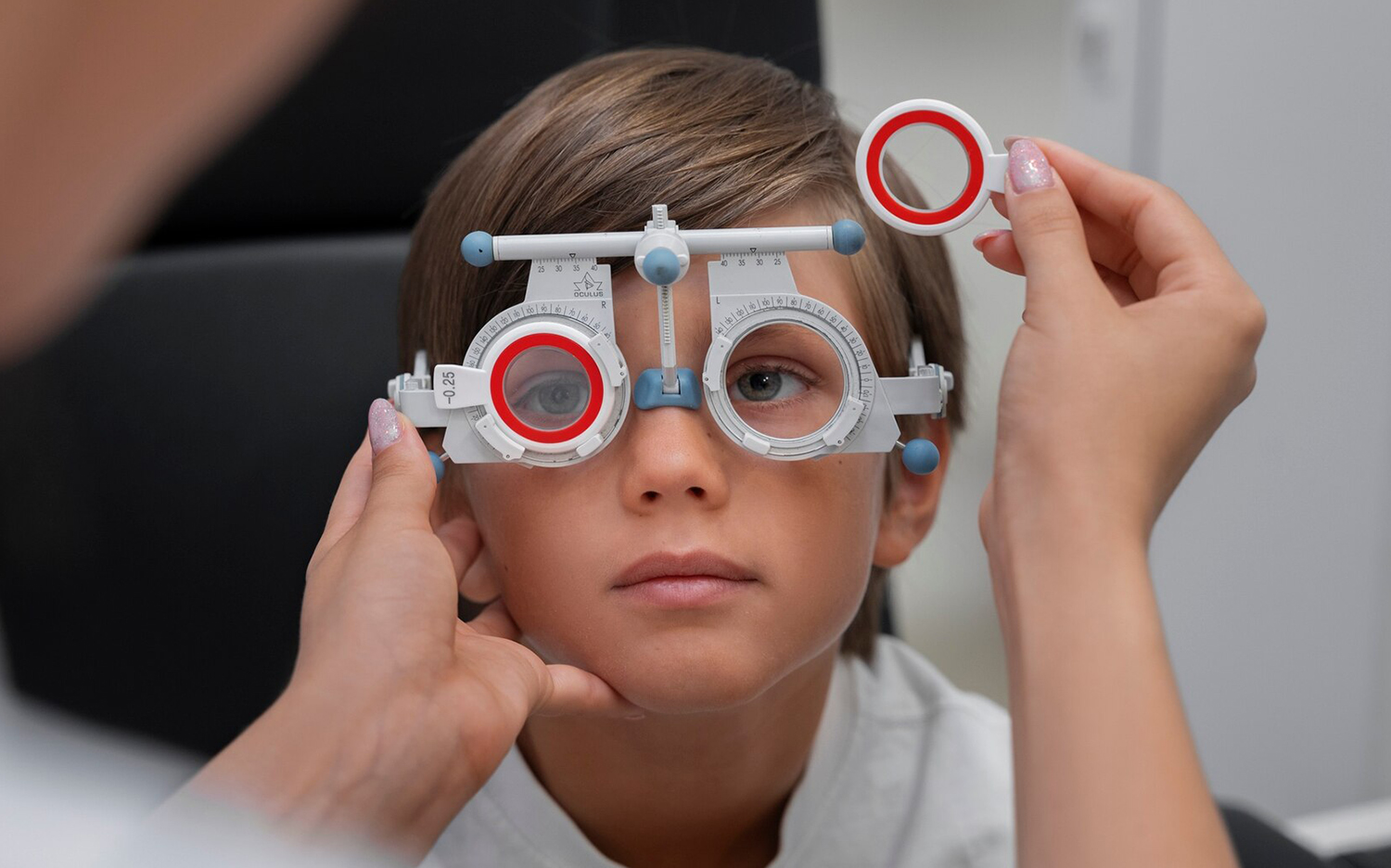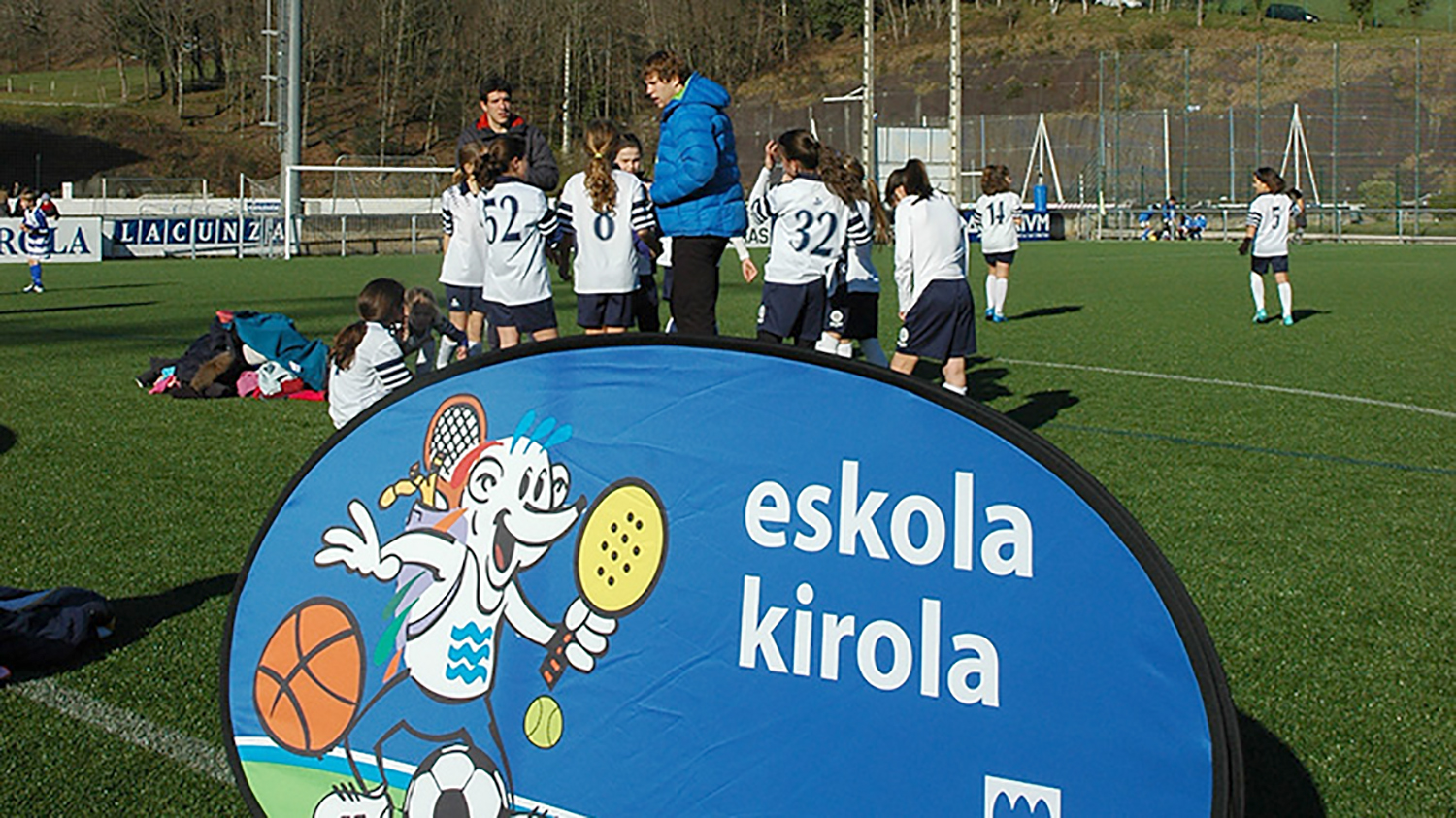"Adults must take a step back to recognize that children are part of the community."
- Naiara Martín Gómez (Elgoibar, 1982) will teach in February in Pamplona the course "How to promote child participation through community actions". He graduated in Pedagogy and is responsible for the Department of Child Education of Atxutxiamaika. Registration is open on the UEU website. We've been with him to talk about the course.

You will focus on the participation that children should have in the community. Why?
The offer of children's leisure in our villages is becoming wider and wider. In general, we adults generate this child offering, with our best intention, of course, but I doubt whether the wishes and interests of children are taken into account. My Final Degree Work has been carried out around the Children's Day of the Festival of Elgoibar, in which I have analyzed issues such as the participation of boys and girls in the design, development and evaluation of their day. The results obtained indicate that the day that is organized for children-as is not organized with the children-as. The opinion of agents working with boys and girls, supposedly as boys, is taken up, but if we ask them their opinion is different.
They are also part of the community...
Of course, but the key is how we integrate them into the community. What role does the adult play in the community? Accordingly, the child will take his/her place in the community.
According to what I have analyzed, children are considered consumers and it is the adult who decides what, how and when it will be organized. The evaluation is also done by the adult, but all this is done from the eyes of the adult, of course. I believe that it is necessary to apply the culture of childhood, since the child-adult relationship that is created in the child's development process is not one-way, but two-way; children also have a great influence on this exchange, or should be so by applying the culture of childhood.
It seems to me that the adult should take a step back to recognize that children are part of the community. Thus, if the adult takes the step from being the representative of the child to being the companion, the child could take his/her place in the community. Moreover, this active participation is also a tool to promote citizenship, since if children feel that they can be active agents in their own country, that their opinion is taken into account, that they can be organizers, they will be more willing to participate in the same people, thus becoming agents.
Before going to practice, you give importance to clarifying concepts.
Yes, I consider it important, for example, to be clear about what we're talking about when we talk about weaving the community. Because if we don't know what we want a community, what communities we want to work for, who makes them in our own and what resources we have to work for it, how are we going to promote that goal?
In this sense, in the first part of the course we will work to understand some concepts that will serve us to promote community, participation, inclusion, culture, leisure and, in general, community actions. In fact, once understood, we will be able to make effective intervention.
Although we're going to go deeper into the theory, I'd like to say that I've tried to do this practice. I don't want to throw anyone out...
With real examples, you will put into practice what you later learned.
That is, it is not a course based on a mere theory. Last year I looked at the Children's Day of my people's holidays, and I will put on the table the results obtained and what I learned by myself. The course carried out in this work will help us to analyze the cases of the people who attend the course, as well as some keys to make their practices more participative, inclusive and efficient to promote the fondness for children's culture. First, we must analyze the role of children and adults in the activities we organize. Once awareness is taken, we will appreciate what steps we want to take and the course will focus on deciding what is the most effective intervention to achieve the goals we have.
To whom is it addressed?
Any person organising initiatives with or for children in villages; staff of associations, educators, government staff, politicians, teachers and volunteers.
What do you want to get with the course?
For my part, to give them some keys to advancing the organization of activities for children and children. To promote the transformation of children into active agents for the national construction.
Mireia Centeno Gutierrez psikopedagogoak haurren elikaduraren inguruko zenbait gako eman ditu; hala nola jatera behartzeak eta jakiak debekatzeak dituen ondorioak aipatu ditu.
Haurtzaroaren amaiera eleberri distopikoa idatzi zuen Arthur Clarkek, 1953. urtean: jolasteari utzi dion gizarte baten deskribapena. Eta ez al da bereziki haurtzaroa jolasteko garaia? Jolasteko, harritzeko, ikusmiratzeko eta galdera biziak egiteko unea. Ulertzeko tartea zabalik... [+]
Eskolaz kanpoko jardueren eskaintza zabala egiten duten ikastetxeen aldean, beste askok ez du horretarako aukerarik; eta eskola bereko ikasleen artean ere, denek ezin dute ekintzetan parte hartu, baliabide ekonomikoek baldintzatuta. Esku hartzeko dei egin diete instituzioei:... [+]
Miopia gero eta gehiago eta gero eta lehenago ari da garatzen, eta horren arriskua da dioptriak gehitzen joatea eta helduaroan begiari lotutako hainbat gaitz izateko aukerak dezente handitzea. “Eguzki-argia jasotzea inportantea da, eta denbora asko ez igarotzea oso gertu... [+]









